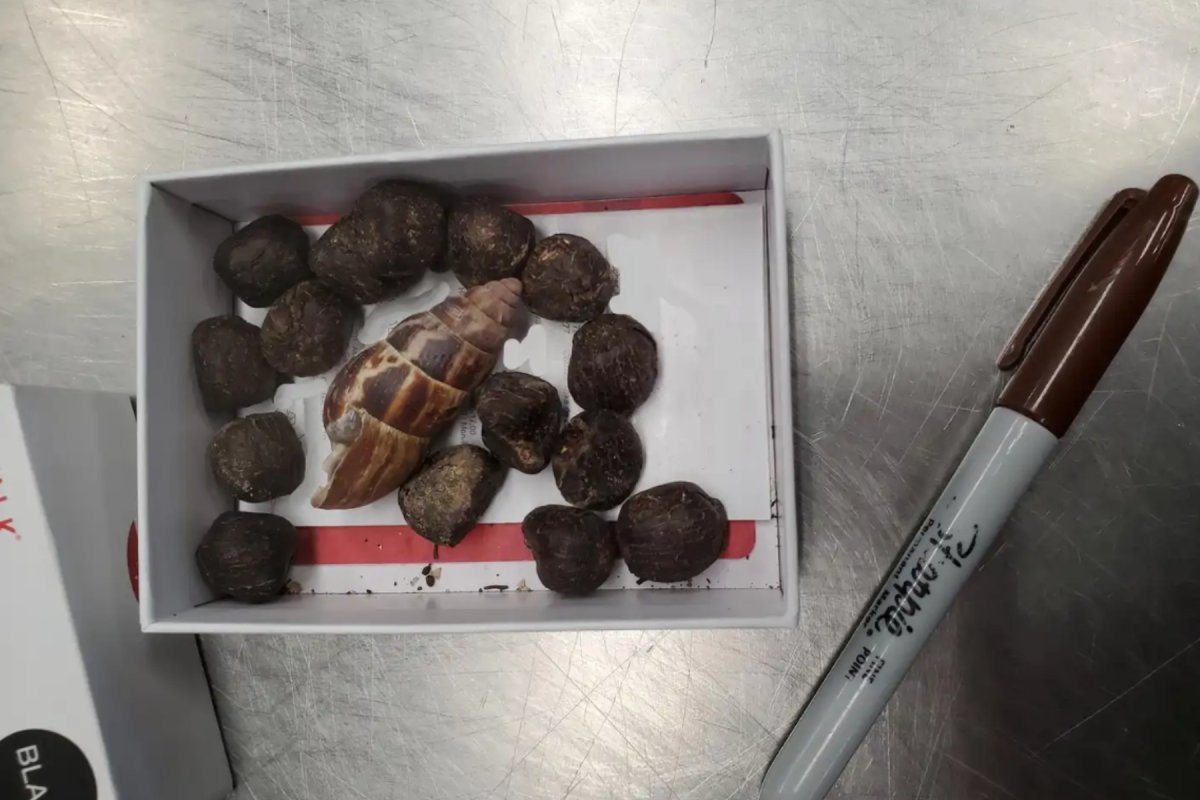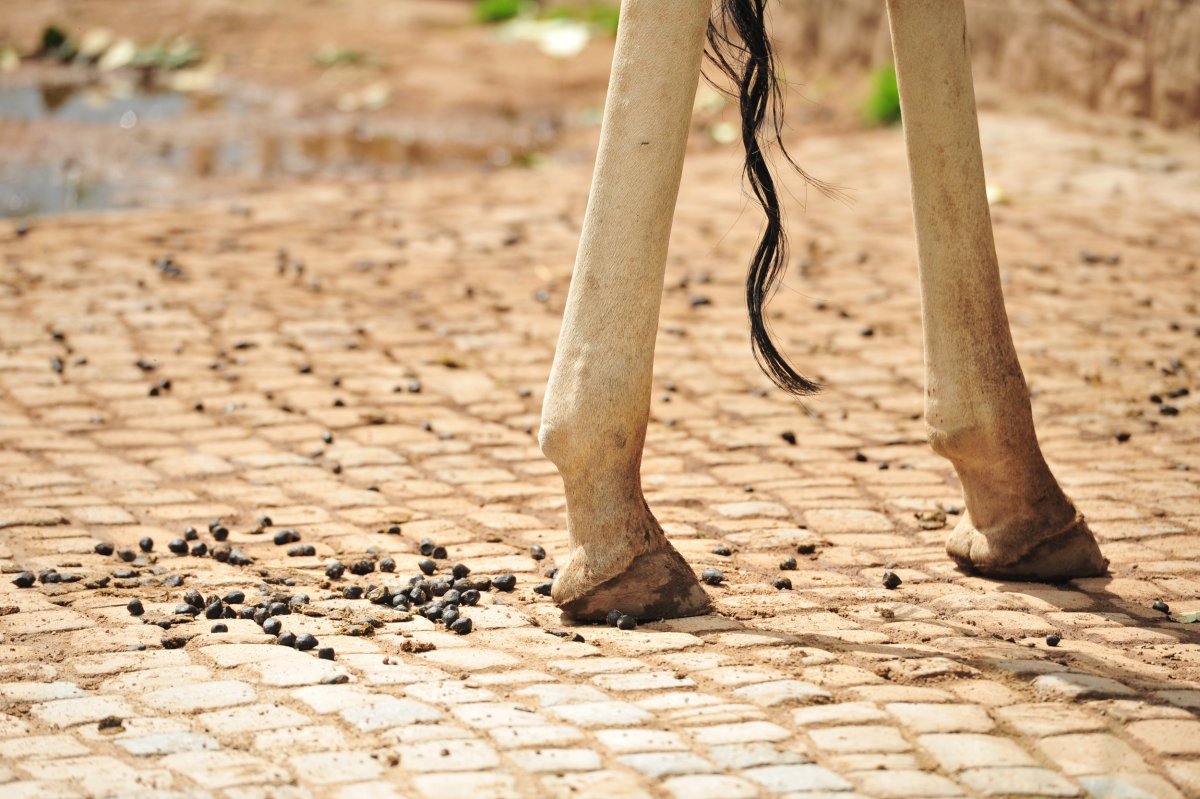A woman attempting to bring giraffe feces into the U.S. to make jewelry had the poop confiscated by border control.
The woman, who was returning to Minneapolis–Saint Paul International Airport from a holiday to Kenya, declared the bowel movements at customs and said she was planning to make a necklace from the material.
After taking the animal mess from her, U.S. Customs and Border Protection (CBP) destroyed it "via steam sterilization per United States Department of Agriculture (USDA) destruction protocol," according to a statement.
The woman said that she had made jewelry out of other animal excrement in the past, including those of a moose.

"We were really a little shocked. We don't normally get fecal material in. That's not something that we see on a daily basis," Lauren Lewis, chief of agriculture for CBP at Minneapolis-St. Paul International Airport, told Minnesota Public Radio. "Normally, we are inspecting a lot of fruits and vegetables and meats and plants that people are bringing back. So fecal material that people were intending to bring with them was an unusual declaration for us."
"Apparently when she is at home she makes jewelry out of moose droppings so when she saw giraffe droppings while on safari she thought that would be a unique addition to her craftwork I guess," Lewis said.
Animal feces can contain disease-causing microbes that are common in the country of origin, which can pose a risk to anyone exposed to them. According to the CBP statement, diseases found in ruminant feces from Kenya can include African swine fever, classical swine fever, Newcastle disease, foot and mouth disease, and swine vesicular disease. Many of these are only a threat to livestock, but some can jump to humans.
"Giraffe feces can also harbor bacteria such as E.coli, Shigella, or Staphylococcus, among others," David Verhoeven, an assistant professor of vet microbiology and preventive medicine at Iowa State University, told Newsweek. "There are a few nematodes like Trichuris that can be in giraffe feces and could pass to cattle or sheep or goats."
There are also some coronaviruses and rotaviruses that can be spread from infected feces and go on to infect cattle.
"There is a real danger with bringing fecal matter into the U.S.," LaFonda D. Sutton-Burke, CBP Director, Field Operations-Chicago Field Office, said in the statement. "If this person had entered the U.S. and had not declared these items, there is high possibility a person could have contracted a disease from this jewelry and developed serious health issues."

"Most of these are likely to be a big risk to our animal agriculture in the US and likely to be less likely to infect humans although the bacteria mentioned above could possibly infect humans," Verhoeven explained. "If spread, many of these would cause GI tract infections, but if foot and mouth infected cattle, the USDA would likely require the animals to be culled. The viruses would be unlikely to infect humans but again could spread to cattle and other important livestock."
Anyone wishing to bring ruminant animal feces into the U.S. required a Veterinary Services Permit, which the woman did not have. Violation of this on purpose can lead to a $300 to $1,000 penalty. The woman had not realized that she required a permit, however, and declared that she was bringing the feces into the country, meaning that she would not face any sanctions.
"She did not intend to potentially affect U.S. agriculture in any way. This was just something that she did as a hobby," Lewis said. "At home, she makes jewelry out of fecal material. So she was just, she just saw something that would be an interesting addition to her hobby. Unfortunately, it's those innocuous importations that sometimes can have the biggest effect."
Do you have a science story to share with Newsweek? Do you have a question about animal diseases? Let us know via science@newsweek.com.
Uncommon Knowledge
Newsweek is committed to challenging conventional wisdom and finding connections in the search for common ground.
Newsweek is committed to challenging conventional wisdom and finding connections in the search for common ground.
About the writer
Jess Thomson is a Newsweek Science Reporter based in London UK. Her focus is reporting on science, technology and healthcare. ... Read more
To read how Newsweek uses AI as a newsroom tool, Click here.






